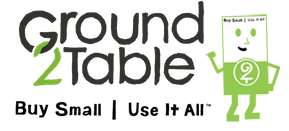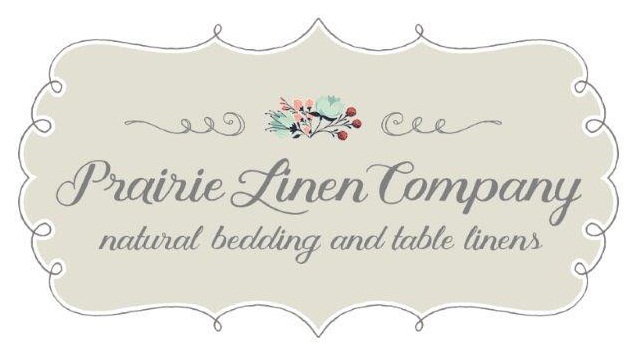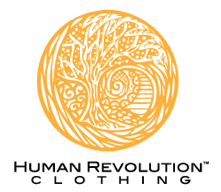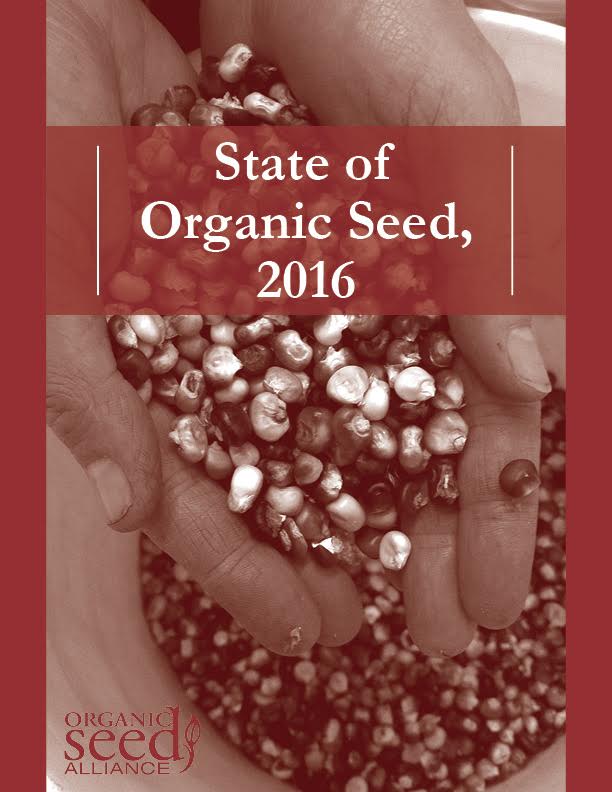
Art | Resources
Ground 2 Table
 12 certified organic, non-GMO, salt-free, sugar-free spice blends , packaged in small bags so you can use it all and eliminate food waste.
12 certified organic, non-GMO, salt-free, sugar-free spice blends , packaged in small bags so you can use it all and eliminate food waste.
Prairie Linen Company
 Handmade luxury bedding and table linens, made in the USA using high quality 100% natural linen fabric.” These are design pieces for decoration, not sheets and pillowcases. Monogrammed and ruffled pillow shams, bedskirts and spreads, crib accessories, placemats and monogrammed napkins, linen fabrics.
Handmade luxury bedding and table linens, made in the USA using high quality 100% natural linen fabric.” These are design pieces for decoration, not sheets and pillowcases. Monogrammed and ruffled pillow shams, bedskirts and spreads, crib accessories, placemats and monogrammed napkins, linen fabrics.
Human Revolution Clothing
 Organic t-shirts and casual clothing for women and men. “Human Revolution Clothing is a social, economic, environmental and LOVE centered clothing company that is passionate about and dedicated to changing the way clothing is made seed to shirt! Our clothing is made from 100% Certified Organic Cotton that is GMOfree & FairTrade. It is GOTS (Global Organic Textile Standard), USDA & Fair Trade certified.”
Organic t-shirts and casual clothing for women and men. “Human Revolution Clothing is a social, economic, environmental and LOVE centered clothing company that is passionate about and dedicated to changing the way clothing is made seed to shirt! Our clothing is made from 100% Certified Organic Cotton that is GMOfree & FairTrade. It is GOTS (Global Organic Textile Standard), USDA & Fair Trade certified.”
The Organic Handkerchiefs Company
GOTS certified organic cotton flannel and woven handkerchiefs in four sizes.
A New Public Health Revolution
There was a great article in The New York Times back in February (I just found out about it) called “Are You a Toxic Waste Disposal Site?”
It talks about toxics in our bodies and in particular exposures to lead, but most importantly, the author gives a historical example of a public health change that worked.
Maybe, just maybe, the crisis in Flint can be used to galvanize a public health revolution.
In 1854, a British doctor named John Snow started such a revolution. Thousands were dying of cholera at the time, but doctors were resigned to the idea that all they could do was treat sick patients. Then Snow figured out that a water pump on Broad Street in London was the source of the cholera. The water company furiously rejected that conclusion, but Snow blocked use of the water pump, and the cholera outbreak pretty much ended.
Thousands were dying…a water pump was found to be the source…one man blocked the use of the water pump.
Oh how I wish I could block the use of toxic chemicals in consumer products!
A group of scholars, led by David L. Shern of Mental Health America, argue that the world today needs a new public health revolution focused on young children, parallel to the one mounted for sanitation after Snow’s revelations about cholera in 1854. Once again, we have information about how to prevent pathologies, not just treat them — if we will act.
The reason for a new effort is a vast amount of recent research showing that brain development at the beginning of life affects physical and mental health decades later. That means protecting the developing brain from dangerous substances and also from “toxic stress” — often a byproduct of poverty — to prevent high levels of the stress hormone cortisol, which impairs brain development.
A starting point of this public health revolution should be to protect infants and fetuses from toxic substances, which means taking on the companies that buy lawmakers to prevent regulation. Just as water companies tried to obstruct the 19th-century efforts, industry has tried to block recent progress.
Back in 1786, Benjamin Franklin commented extensively on the perils of lead poisoning, but industry ignored the dangers and marketed lead aggressively. In the 1920s, an advertisement for the National Lead Company declared, “Lead helps to guard your health,” praising the use of lead pipes for plumbing and lead paint for homes. And what the lead companies did for decades, and the tobacco companies did, too, the chemical companies do today.
Well, we here on this website are already having the revolution right here in our own homes. We all just need to make it more known.
Finding Nontoxic Shoes
Question from Tammy
Hi Debra,
Hi for about a year now my feet have been very painful cannot get comfortable in any shoe my feet become real hot and I just want to rip my shoes off within 10 minutes of putting them on. Recently found out I was allergic to fossil fuel’s which include Rubber all the memory foam shoes I can’t find any shoes that are good for me I am looking for leather shoes with no padding and no rubber soles I’m allergic to the glue’s etc. I really need help has anybody found any shoes That might work?
Debra’s Answer
First, there are already some resources on this website for shoes:
How to Choose Toxic Free Shoes
But today I want to give you even more information.
I spent quite a bit of time online over the weekend looking at shoes. And I found some I want to investigate further.
But here’s what I learned. There are A LOT of shoes available made from natural materials. The key is to search on the type of material you are interested in and then look at IMAGES. From this gallery you will find many brands and then you can find out more about them.
Also if you find some you like, click on the image and google will give you a box with “more like this” choices. Look at those too.
For example here are some search results…
“vegetable tanned leather sandal”

“cotton shoes” and “cotton espadrilles”


Have fun looking and post a comment to let us know what you find.
Promotion v. Precision
Last week this issue came up twice in one day, and it came up again this morning, so I decided to write a post about it.
The issue is promotion of a product versus the precision of product description. Promotion being text and images created specifically to make you want to buy the product and precision the act of being exact and accurate.
First, a long-time reader wrote to me and asked what I thought of a product that had been promoted that day via email.
I took a look at the promotion page, and there simply wasn’t enough detail for me to evaluate the product. But it was a great promotion—great enough to make her want to buy it. In this cassette technical details about the product were missing altogether.
Second, I made a mistake in recommending a business on Debra’s List, I was so charmed by the promotion and the content in the headlines that I didn’t look deep enough on the site to find details that were there.
The website I deleted is Bears for Humanity.
On their home page it says, “Our products are made of 100% GOTS Certified Organic Cotton and Hemp.” And they display the GOTS logo.
On their About page they say “From farm to fulfillment, our plush toys are made using only 100% GOTS Certified Organic materials and Global Fair Trade practices, while employing at-risk women from Welfare-to-Work programs right here in the United States.
Now doesn’t that sound like 100% of the bear is GOTS Certified Organic Cotton and GOTS Certified Organic Hemp?
Not so.
Reading further on the site it says, “Our bears’ shells are made from a one-of-a-kind certified organic, sustainably-sourced fabric developed in partnership with EnviroTextiles.” It’s “faux fur.” But it doesn’t say if this is organic cotton or organic hemp or organic something else. I called EnviroTextiles and they told me it was 41% (not organic or certified) hemp, 34% certified organic cotton, 24% synthetic PET (in the backing, not the fur). Don’t know if the PET is recycled. She didn’t say.
And the filling is made from recycled soda bottles.
Not 100% organic, not even 100% natural, and the product itself is not GOTS certified.
I’m not even sure the fabric is GOTS certified because there are no certificates. Only claims.
But they did a great job at making it LOOK like a GOTS-certified organic product.
And then this morning there was another one.
A reader commented in Toxic Free Q&A asking about the materials used to make Telic sandals. As I said in my response to her comment, I called Telic and asked them what their material was made from. The website says only a patented trade name, and that it’s an “elasto-polymer.” The customer service rep said it was “toxic-free” but couldn’t tell me what type of plastic it was. He said he knows it’s toxic free because it was tested. When I asked for a certificate he said it was on the website, but he couldn’t find it.
Again, this is no information. Yet, the rep claimed the material is “toxic free.” Great promotion though about Made in America and molded to support your foot.
There are federal laws about advertising. You need to 1) tell the truth and 2) substantiate your claims.
To fulfill both of these, manufacturers need to reveal their materials and show their certificates or give other substantiations about claims. Take a look at Debra Lynn Dadd Recommended Products for examples of manufacturers who are doing this.
We consumers need to double-check headlines, read the information that is given, and ask for information if it is missing.
And not be swayed by promotion.
I so wanted there to be an organic teddy bear!
Is Coffee Bad to Drink?
Question from Terri
Hi Debra,
Hello, my name is Terri. I’m in quite the conundrum, should I stop drinking coffee or not. Does coffee have toxins such as metals. Does Tea have metal toxins Does organic tea have metal toxins. Or even other toxins I should worry about. Any help I would love. Thank you.
Debra’s Answer
In my opinion, it’s OK to drink organic coffee. I drink it occasionally, not every morning.
Recently the World Health Organization (WHO) reversed their position on coffee.
The International Agency for Research on Cancer (IARC) had previously rated coffee as “possibly carcinogenic” but has changed its mind.
It’s latest review, however, found “no conclusive evidence for a carcinogenic effect” of coffee drinking and pointed to some studies showing coffee may actually reduce the risk of developing certain types of cancer
At the same time, IARC presented other scientific evidence which suggests that drinking anything very hot—around 149 degrees Fahrenheit or above—including water, coffee, tea and other beverages—probably does cause cancer of the oesophagus.
If you are going to drink coffee, organic is best, to avoid the toxic pesticides, and decaffeinated is even better.
Read this pros-and-cons article on the health effects of coffee.
Here’s the info on toxics in tea: Q&A: Tea Steeped in Toxics
And I would always make organic coffee or tea with filtered water.
Man-made pollutants found in Earth’s deepest ocean trenches
New research—which has not yet been published—has found high levels of man-made chemicals in Mariana Trench, the world’s deepest trench.
This is the first time there have been tests done at the depth of 7,000-10,000 feet.
Banned PCBs and the fire retardant PBDE were found in high concentrations in small shrimp-like creatures that live in the Trench.
NATURE: Man-made pollutants found in Earth’s Deepest Ocean Trenches
Not All Organic Food is Grown From Organic Seed
Organic standards require organic food to be grown from organic seed, but a new report from Organic Seed Alliance (OCA) found that the supply of organic seeds isn’t keeping pace with the rising demand for organic products. In 2015, sales of organic products totaled $43 billion.
Organic farmers say that organic seed does need to be used because all seed is not the same.
Most commercial seed is bred to rely on the high fertilizer inputs of industrial agriculture. Organic farmers need seed bred to thrive on the slow release of nutrients from organic soil amendments.
THE US Department of Agriculture (USDA) allows some leeway for certified organic foods and fibers due to lack of supply.
 Though the supply of organic seed is increasing, today only 27 percent of organic farmers use 100 percent organic seed.
Though the supply of organic seed is increasing, today only 27 percent of organic farmers use 100 percent organic seed.
If you are growing an organic garden, use organic seed for best results.






